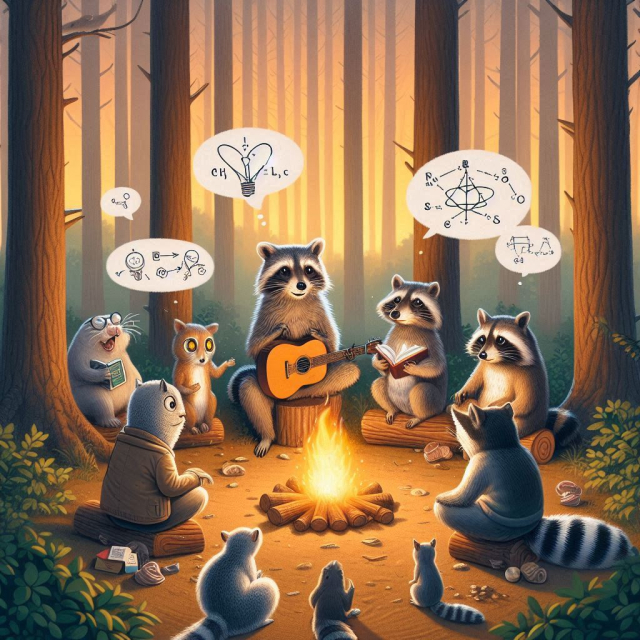Intelligence in the animal kingdom is a fascinating field that challenges our perceptions of the cognitive ability and consciousness of other species. Although we have traditionally considered humans to be the most intelligent beings on the planet, numerous studies have shown that many other species possess surprising cognitive abilities. This article will explore some of the world's most intelligent species, highlighting their capabilities and behaviors that reflect high levels of intelligence.
Defining Animal Intelligence.
Animal intelligence can be defined in a variety of ways, including the ability to solve problems, learn from experience, use tools, communicate in complex ways, and display sophisticated social behaviors. Below are some of the most intelligent animals, based on these definitions.
Primates: Our Close Relatives.
Chimpanzees (Pan troglodytes).
Chimpanzees are perhaps best known for their intelligence. They share approximately 98% of their DNA with humans and exhibit a number of advanced behaviors, such as tool use, group hunting, and the ability to solve complex problems. Jane Goodall, the famous primatologist, documented how chimpanzees use sticks to extract termites from their mounds, a clear example of tool use.
Bonobos (Pan paniscus).
Bonobos, often called the "peaceful cousins" of chimpanzees, also display remarkable intelligence. They are known for their complex social behavior and their ability to resolve conflicts through sexual interactions rather than violence. This conflict resolution strategy and his ability to understand human language and use symbols highlight his intelligence.
Cetaceans: Giants of the Ocean.
Dolphins (Delphinidae).
Dolphins are famous for their mental acuity. They have large and complex brains, and their cerebral cortex has a number of gyri similar to that of humans, indicating a high capacity for information processing. Dolphins are known for their use of echolocation to navigate and hunt, their ability to learn human commands, and their highly developed social behavior, which includes play, cooperation, and teaching skills to other dolphins.
Killer whales (Orcinus orca).
Also known as "killer whales," orcas are actually members of the dolphin family and demonstrate impressive intelligence. They live in complex social groups called packs, which have unique vocal dialects and specialized hunting techniques. Orcas are able to coordinate as a team to catch prey, demonstrating advanced communication and cooperation skills.
Elephants: Giants with Memory.
Elephants (Elephantidae).
Elephants are known for their prodigious memory and problem-solving abilities. They have large brains with a highly developed cerebral cortex, especially in areas associated with memory and emotion. Elephants display mourning behaviors, self-recognition in mirrors (an indication of self-awareness), and the use of tools. They also have complex social structures and can communicate through low-frequency sounds that travel long distances.
Birds: Intelligence in the Air.
Ravens (Corvus).
Crows and their close relatives, common crows and crows, are some of the most intelligent birds. They are known for their ability to solve complex problems and use tools. For example, New Caledonian crows make tools from leaves and branches to extract insects from the bark of trees. They are also capable of planning for the future and displaying sophisticated play behaviors.
Parrots (Psittacidae).
Parrots, especially species like the African gray parrot, have a remarkable ability to imitate human speech and understand abstract concepts. Alex, an African gray parrot studied by psychologist Irene Pepperberg, was able to count, recognize colors and shapes, and understand concepts of "same" and "different." These achievements demonstrate a cognitive ability comparable to that of a young child.
Other Notable Animals.
Octopuses (Octopoda).
Octopuses are invertebrates with surprising intelligence. They have large brains relative to their body size and show remarkable abilities to solve problems, use tools, and escape from difficult situations. They are known for their ability to open jars, manipulate objects, and change color to camouflage themselves.
Dogs (Canis lupus familiaris).
Dogs have co-evolved with humans for thousands of years, leading to a remarkable ability to understand and respond to human signals. Dogs are capable of learning commands, understanding words, and showing empathy towards their owners. The intelligence of dogs varies by breed, with some breeds, such as Border Collies, showing exceptional skills in herding and learning complex tasks.
Animal Intelligence in Perspective.
Animal intelligence is a field that continues to evolve as scientists discover more about the cognitive abilities of different species. These discoveries challenge our perceptions and invite us to reconsider the relationship between humans and other animals.
Research and Ethics.
Research into animal intelligence raises important ethical questions about how we treat animals. Recognizing the cognitive capacity of other species can lead to greater empathy and more respectful treatment of animals.
Conservation and Protection
Understanding animal intelligence may also have implications for conservation. People are more likely to support protecting species they perceive as intelligent and socially complex.
Animal intelligence is a fascinating topic that reveals the complexity and diversity of behavior in the animal kingdom. From chimpanzees and dolphins to crows and octopuses, many species demonstrate surprising cognitive abilities that challenge our traditional perceptions. Research in this field not only expands our scientific knowledge, but also invites us to reflect on our relationship with other forms of life on the planet. As we continue to explore and discover more about animal intelligence, we can learn valuable lessons about adaptability, communication and cooperation, qualities that are fundamental to the survival and well-being of both humans and animals.






